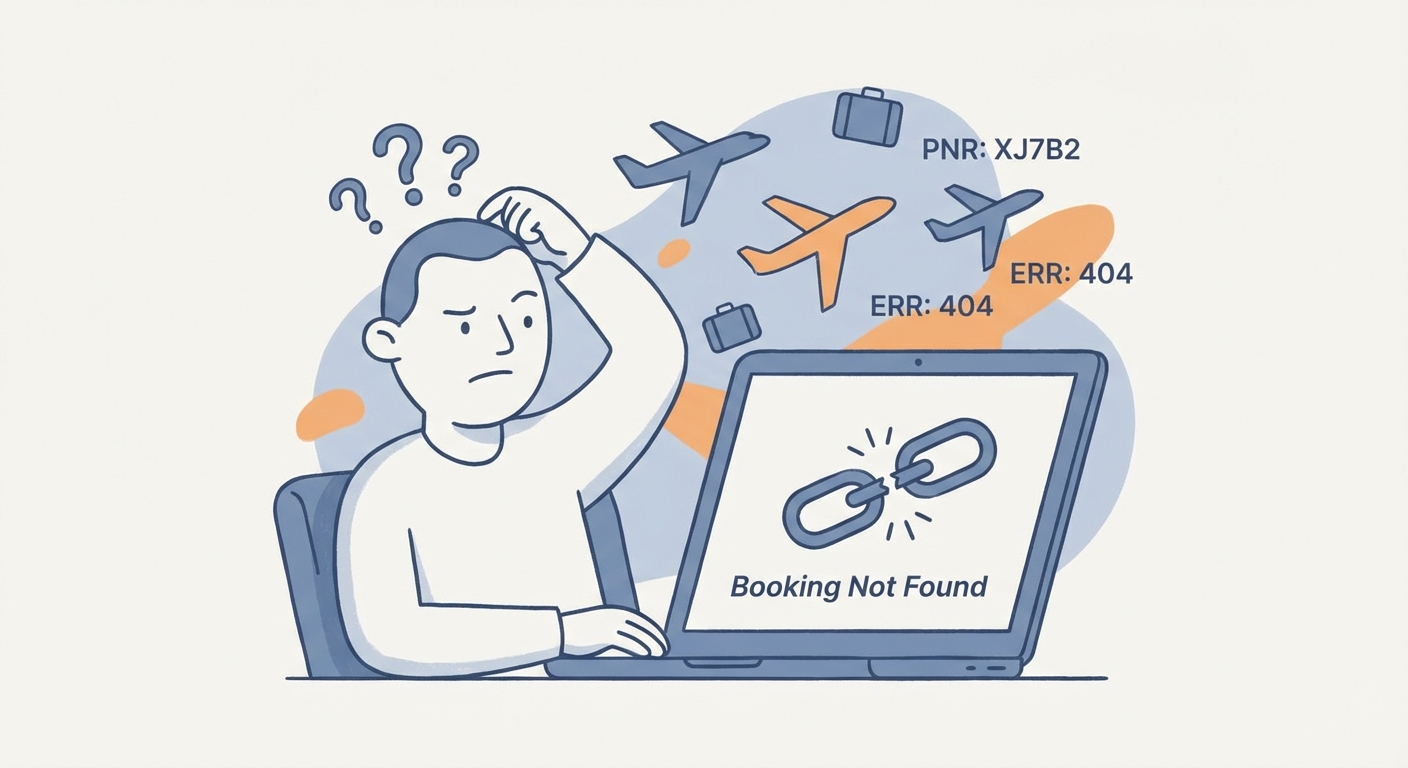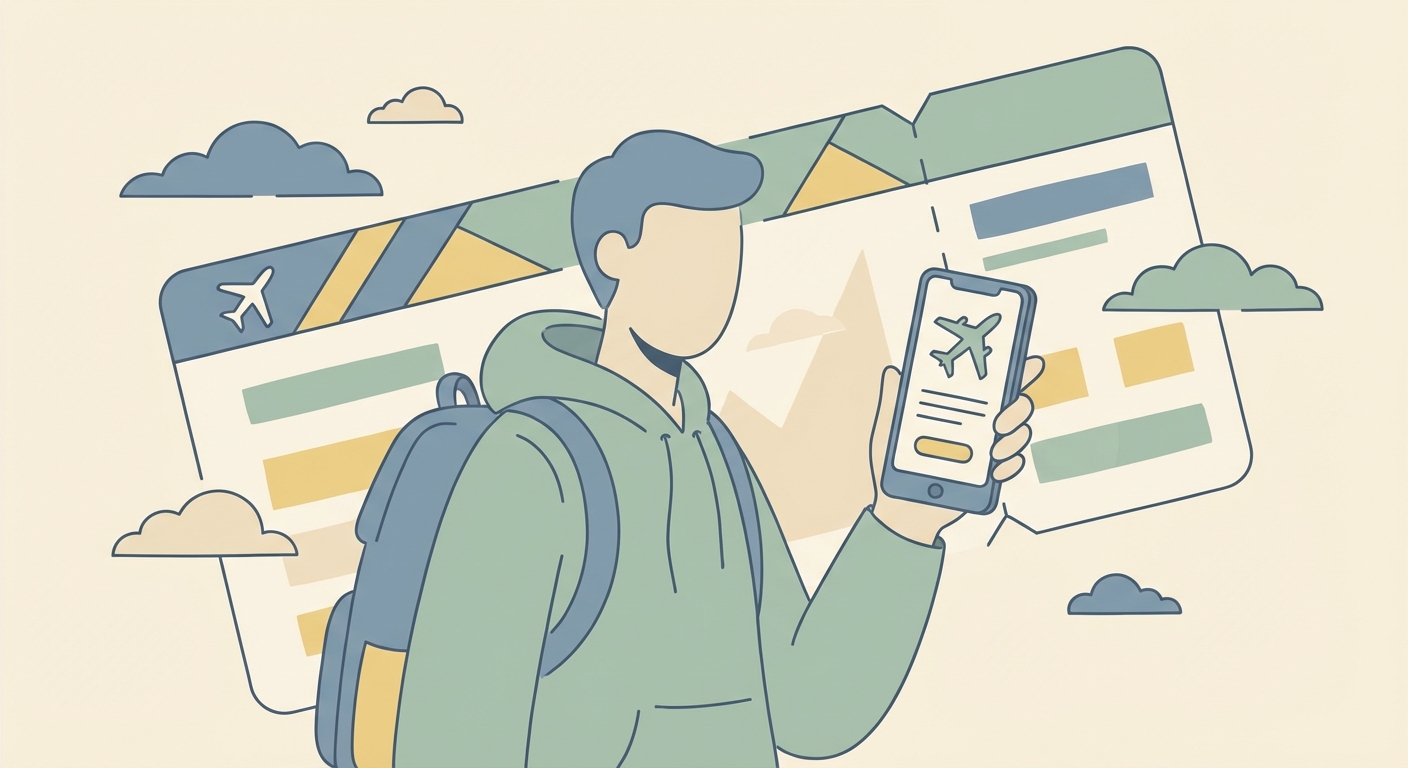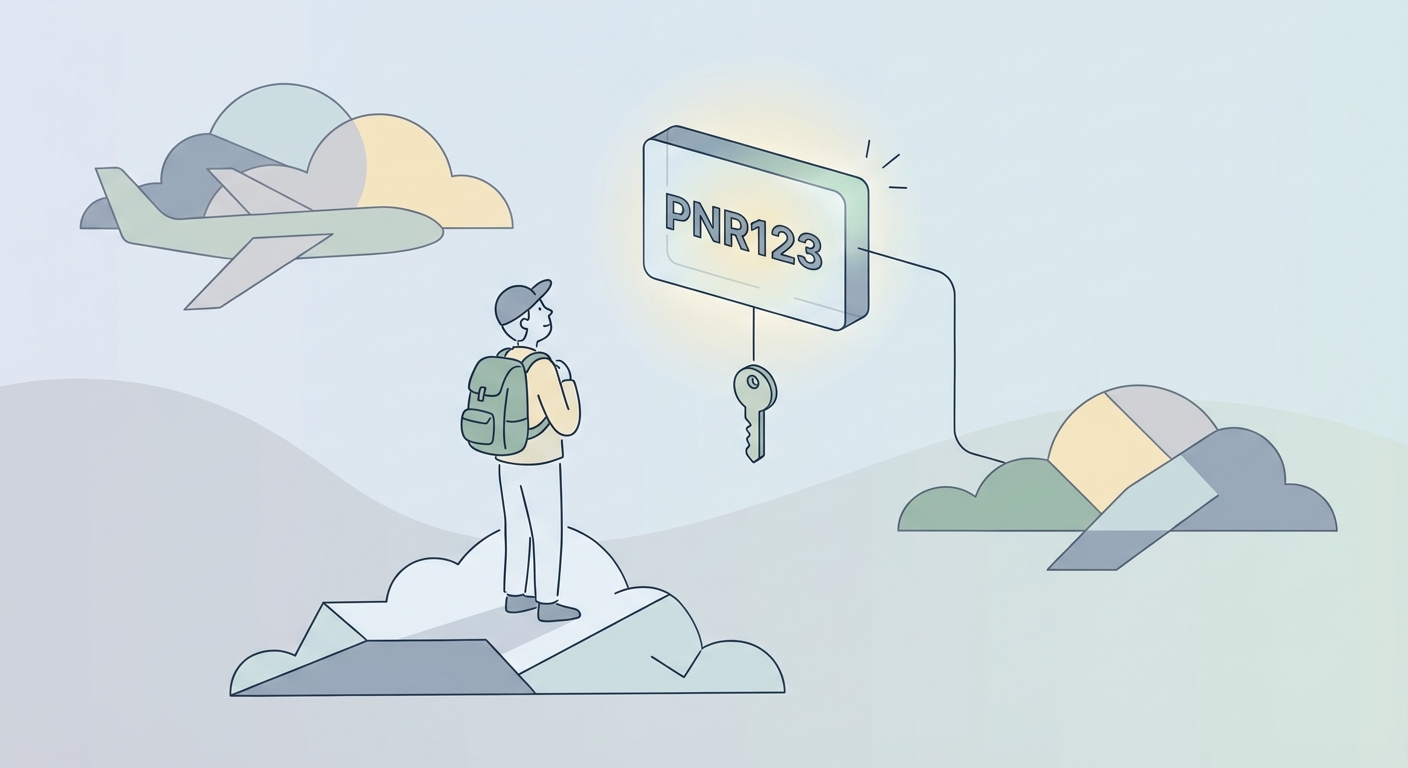Stay Safe on Your Adventures: A Traveler's Guide to Cybersecurity Best Practices
Stay Safe on Your Adventures: A Traveler's Guide to Cybersecurity Best Practices
Understanding the Risks: Why Travel Cybersecurity Matters
Did you know that a staggering number of travel bookings happen online, making travelers prime targets for cyberattacks? (Under siege: Why airlines have been prime targets for ...) It's time to understand why travel cybersecurity matters and what risks you face.
Travelers now depend on digital tools for nearly every aspect of their trips. From booking flights and hotels to navigating unfamiliar streets with GPS, our digital footprint grows with each journey. This heavy reliance creates more openings for cybercriminals to strike.
- Booking and Planning: We use apps and websites to book flights, hotels, and tours.
- Navigation: Digital maps guide us, storing location data.
- Communication: We stay connected with family and friends via social media and messaging apps.
This convenience comes at a cost. Compromised data can lead to identity theft, financial losses, and ruined travel plans. For example, a breach of a hotel's database could expose your credit card information and personal details.
Several cyber threats specifically target travelers. Being aware of these risks is the first step in protecting yourself.
- Public Wi-Fi Vulnerabilities: Unsecured public Wi-Fi networks in airports and cafes expose your data to interception.
- Phishing Scams: Deceptive emails and messages trick you into revealing sensitive information.
- Malware Infections: Compromised devices spread malware through infected downloads or networks.
- Skimming and Fraud: Credit card fraud at ATMs and point-of-sale systems is a persistent threat.
The fallout from a cyberattack can be significant and long-lasting. Beyond the immediate disruption, there are serious potential consequences.
- Financial Losses: Fraudulent transactions and identity theft can drain your bank accounts.
- Loss of Personal Data: Passports, travel itineraries, and contact details can be stolen.
- Compromised Travel Plans: Bookings can be cancelled, and access to accounts denied.
- Reputational Damage: Travel companies that suffer data breaches can lose customer trust.
Next, we'll explore practical steps you can take to protect yourself while on the move.
Pre-Trip Preparations: Securing Your Devices and Data
Protecting your devices and data before you travel is like packing a first-aid kit—essential for a smooth journey. Let's explore how to prepare your tech for a secure adventure.
Before you set off, ensure your devices are fortified against potential cyber threats. A few simple steps can significantly reduce your risk.
- Update software and operating systems: Install the latest security patches on all devices. Updates often include critical fixes for known vulnerabilities.
- Enable strong passwords or biometric authentication: Protect your devices from unauthorized access. Use a combination of letters, numbers, and symbols for passwords, or enable fingerprint/facial recognition if available.
- Install antivirus and anti-malware software: Provide real-time protection against threats. This software scans for and removes malicious programs, keeping your device safe.
- Enable "Find My Device" features: Locate, lock, or wipe lost or stolen devices remotely. These tools are invaluable if your device goes missing. The National Cybersecurity Alliance recommends setting up remote tracking tools before you leave.
Safeguarding your data is as important as securing your devices. Backing up and encrypting sensitive information ensures that it remains protected, even if your device is compromised.
- Back up important files to the cloud or an external hard drive: Prevent data loss in case of device damage or theft. Services like Google Drive, Dropbox, or an external hard drive can be used for backing up.
- Encrypt sensitive data on your devices: Protect information from unauthorized access. Encryption scrambles your data, making it unreadable without the correct key.
- Use a password manager: Securely store and manage strong, unique passwords for all accounts. Password managers generate and remember complex passwords, reducing the risk of password reuse.
Take control of your digital footprint by adjusting privacy settings on your devices and apps. Limiting the amount of personal information shared reduces the risk of data exposure.
- Review privacy settings on apps and social media: Limit the amount of personal information shared. Adjust settings to control who can see your profile and posts.
- Disable location tracking for unnecessary apps: Reduce the risk of location data being compromised. Only allow location access for apps that genuinely need it.
- Use a VPN (Virtual Private Network): Encrypt your internet connection for secure browsing. A VPN creates a secure tunnel for your data, protecting it from interception on public Wi-Fi networks.
Taking these pre-trip precautions will greatly enhance your cybersecurity posture while traveling. Next, we'll cover staying safe while you're on the move.
Staying Safe on the Road: Cybersecurity Best Practices While Traveling
Don't let cyber threats ruin your travel experiences. When you're on the road, staying vigilant about cybersecurity is as crucial as keeping an eye on your belongings.
Public Wi-Fi networks are convenient, yet they pose significant security risks. Avoid accessing sensitive accounts like banking or email when using public Wi-Fi. Instead, use your phone's hotspot for a more secure connection.
- Verify the legitimacy of the Wi-Fi network with hotel staff or venue representatives. This helps ensure you're connecting to a legitimate network and not a spoofed one.
- Disable auto-connect for Wi-Fi to prevent automatic connections to unknown networks. This prevents your device from automatically joining potentially malicious networks.
A VPN, or Virtual Private Network, creates a secure, encrypted connection. This protects your data from interception on public Wi-Fi networks.
Physical security of your devices is just as important as digital security. Always keep devices with you or locked in a hotel safe. The National Cybersecurity Alliance advises travelers to secure their devices, as mentioned earlier.
- Never leave devices unattended in public places. Even a brief trip to the restroom at a café could be enough time for theft or shoulder surfing.
- Be aware of pickpocketing and device grabbing. Criminals often target tourists, so stay vigilant in crowded areas.
- Consider using a device lanyard or leash for your phone. This can help prevent accidental drops or theft.
Public computers in hotels, libraries, or cafes can be risky. Avoid accessing personal accounts on these machines.
- If you must use a public computer, always log out completely and clear browsing history. Simply closing the browser isn't enough to protect your data.
- Be wary of keyloggers or other malicious software installed on public computers. These can record your keystrokes and steal your login credentials.
Taking these precautions while traveling helps minimize your cybersecurity risks. In the next section, we'll cover what to do when you return home to ensure your devices and data remain secure.
Spotting and Avoiding Travel Scams
Travel scams are a persistent threat that can quickly derail even the most meticulously planned trips. Recognizing these scams is the first line of defense in protecting your travel experience.
Be vigilant about phishing emails and messages promising too-good-to-be-true travel deals. Cybercriminals often impersonate airlines, hotels, or travel agencies to trick you into revealing sensitive information.
- Be wary of unsolicited emails or messages offering travel deals or requesting personal information. For example, you might receive an email claiming you've won a free vacation, but to claim it, you must provide your credit card details for "taxes and fees."
- Verify the sender's authenticity before clicking on links or providing data. Always check the sender's email address and contact the company directly through official channels to confirm the offer's legitimacy.
- Look for red flags such as poor grammar, spelling errors, and unusual requests. Phishing emails often contain these errors, which are telltale signs of a scam.
Fake booking sites and accommodation scams are designed to steal your money and personal data. Always book through reputable websites and agencies.
- Book accommodations and travel through reputable websites and agencies. Ensure the website uses HTTPS and has a valid security certificate.
- Double-check the website's URL for misspellings or variations of legitimate sites. Scammers often create fake sites with URLs that are very similar to real ones.
- Read reviews and check ratings before booking. Look for consistent positive feedback from multiple sources.
- Be cautious of deals that seem too good to be true. If a price is significantly lower than others, it's likely a scam.
Protecting your credit card information while traveling is essential to prevent fraud. Use secure ATMs and monitor your bank statements regularly.
- Use ATMs located in secure areas, such as inside banks or well-lit public spaces. Avoid using ATMs in isolated or poorly lit areas.
- Cover the keypad when entering your PIN. This prevents shoulder surfing, where someone tries to steal your PIN by watching you enter it.
- Be alert for skimming devices attached to ATMs or point-of-sale systems. Check for anything that looks unusual or out of place.
- Monitor your bank and credit card statements regularly for unauthorized transactions. Report any suspicious activity to your bank immediately.
Staying informed is key to enjoying a worry-free trip. Next, we'll discuss what to do in case you do fall victim to a cyberattack while traveling.
Post-Trip Security Measures: Protecting Your Data Back Home
Returning home from an adventure doesn't mean the cybersecurity journey ends; it's just a new phase. Taking the right post-trip security measures ensures your data remains safe long after you've unpacked your bags.
Once you're back, it's crucial to check all your online accounts for any unusual activity. Look for anything suspicious, like unrecognized charges or unfamiliar logins.
- Monitor your email, social media, and financial accounts closely.
- Watch for password reset attempts you didn't initiate.
- Report any unauthorized activity to the relevant institutions immediately to minimize potential damage.
A key step in post-trip security is updating your credentials. Change your passwords and PINs to prevent any potential unauthorized access gained during your travels.
- Change passwords on all devices and accounts you used during your trip.
- Update PINs for ATMs and credit cards to safeguard your financial information.
- Using a separate set of passwords for travel compared to your everyday accounts adds an extra layer of security.
Often, we download apps specifically for a trip, like local transportation or restaurant finders. Once back home, these apps can become a security risk if left unaddressed.
- Audit your devices and uninstall any apps you no longer need.
- Revoke permissions for apps that you're not actively using to limit their access to your data.
- Removing these apps reduces the risk of data breaches and potential malware infections, as The National Cybersecurity Alliance advises travelers to remove unused travel apps, as mentioned earlier.
Taking these steps can help you maintain a secure digital environment after your travels. Next, we’ll discuss what to do if you fall victim to a cyberattack while traveling.
Planning Your Next Adventure Securely with GoTriply
Ready to take your travel planning to the next level? GoTriply uses cutting-edge technology to help you create unforgettable and secure adventures.
Discover personalized travel itineraries tailored to your adventurous spirit with GoTriply's AI-powered trip planner. The platform analyzes your preferences to suggest destinations and activities.
Explore a curated selection of activities, attractions, and local experiences designed to match your unique preferences. GoTriply ensures you find hidden gems and popular spots.
Benefit from secure booking assistance for hotels and activities, ensuring your travel plans are both exciting and safe. This feature helps you avoid potentially fraudulent listings.
Access comprehensive destination exploration guides that provide essential security information alongside travel tips. Stay informed about local conditions and potential risks.
Learn about local cybersecurity risks and how to mitigate them while enjoying your adventure. Get practical advice on using public Wi-Fi and protecting your data.
GoTriply ensures you're informed and prepared, so you can focus on making memories. Enjoy your trip with peace of mind.
GoTriply's booking assistance services prioritize your security with carefully vetted partners and secure transaction processes. The platform uses encryption to protect your financial information.
Enjoy peace of mind knowing your personal and financial information is protected throughout your booking experience. GoTriply works with reputable vendors.
Focus on the excitement of your upcoming adventure, knowing GoTriply has your security covered. The platform handles the details, so you can relax.
With GoTriply, you can plan your next adventure with confidence, knowing that your security is a top priority. Next, we will explore what you should do if you experience a cyberattack while traveling.
Additional Resources and Further Reading
The journey to cybersecurity doesn't end with this guide; it's an ongoing expedition. To help you stay informed and protected, here are some valuable resources for further exploration.
Several government agencies offer comprehensive cybersecurity resources. These resources can help you stay ahead of potential threats.
- The U.S. Department of Homeland Security's Computer Emergency Readiness Team (CERT) webpage provides alerts, tips, and guidance on current security threats and vulnerabilities.
- The FCC's Cybersecurity Tips for International Travelers offers specific advice for securing your devices and data while traveling abroad.
- CISA (Cybersecurity and Infrastructure Security Agency) provides best practices, services, and tools to help individuals and organizations manage cyber risks.
Staying informed about local laws and policies is crucial for safe travels. Different countries have varying approaches to online security and privacy.
- The State Department website offers travel safety information for every country. This includes details on local laws and policies regarding online security and privacy.
Continuous learning is key to staying protected in the ever-evolving cybersecurity landscape. Regular training keeps you updated on the latest threats and best practices.
- Consider participating in cybersecurity awareness training programs. These programs equip you with the knowledge and skills to recognize and avoid common cyber threats.
- Emphasize the importance of continuous learning and staying updated. The cybersecurity landscape is constantly evolving, so ongoing education is essential.
By exploring these resources, you can enhance your cybersecurity knowledge and protect yourself from evolving threats. As Travelers Risk Index shows, cybersecurity is a top concern.
Equipped with these resources, you're well-prepared to navigate the digital landscape safely. Now, let's recap the key takeaways from this guide.





